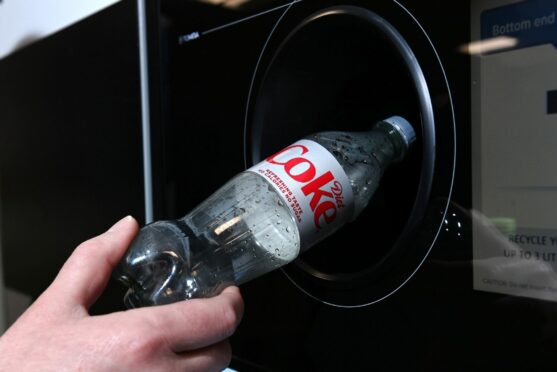
The caravan of news moves quickly and the dust and noise of Nicola Sturgeon’s resignation knocked her government’s problems over the looming deposit scheme for bottles and cans off the agenda. It is likely to return, however.
At the beginning of last week, a cross-party group of MSPs, including SNP politicians, had written to the First Minister expressing their reservations, describing the plans as reckless and questioned the wisdom of ploughing ahead with the scheme when “there are extensive and wide-ranging concerns about the project”.
Companies have until the end of the month to sign up for it but industry critics believe the new rules and cost could mean many smaller companies go out of business. There are also fears this will lead to an unlawful trade barrier with the rest of the UK, as it would result in different prices being charged on either side of the border. England, Wales and Northern Ireland are due to introduce the scheme in 2025, so surely it would be better to wait till then and have a less complicated unified approach?
For customers, what this all means is that we’ll be charged an extra 20p when we buy a can of juice or a bottle of wine. This is to incentivise us to return the empty can or bottle to recoup the money. The point is to encourage recycling and tackle Scotland’s horrendous litter problem. And that is an admirable and crucial ambition.
Groups like Keep Scotland Beautiful say we are facing a litter emergency. Recent figures suggest the amount of rubbish on our streets is getting worse and deprived communities are the most affected.
A similar scheme existed when I was a child and I remember with great fondness scouring the streets and parks around Lenzie looking for discarded fizzy drinks bottle. There was always a frisson of excitement when you spotted one, as it meant getting precious pennies to stuff your face with sweets.
But it says something, doesn’t it, that even when you could make some money people still chucked them away. And that’s the concern now. Critics believe that cash-strapped councils will cut back kerbside recycling collections, hoping that the deposit scheme will pick up the slack. But what if customers can’t be bothered returning them? Where then do these single-use products end up? On the streets or in landfill?
Nothing makes my blood boil more than seeing somebody littering. I’ve nearly had my head kicked in on more than one occasion after I’ve challenged the litterer to pick it up but I can’t help myself. It’s the most wantonly selfish and thoughtless act and I simply don’t understand why these culprits can’t just stick their detritus in the bin.
Walking past groups of school children of a lunchtime, my littering antennae are particularly attuned to any bad behaviour. Poor kids, the vast majority wouldn’t dream of throwing their sweetie wrappings and coke cans away, but woe betide any of them that do. A middle-aged woman full of righteous indignation is a terrifying sight. I’m happy to pick up stray bottles, crisp packets and bits of paper and dispose of them. But I’m not a properly committed litter picker like many fine individuals who devote hours of their time patrolling beaches and roadsides.
The writer and broadcaster David Sedaris puts us all to shame. He walks miles every day around his West Sussex home collecting litter in his community. He’s regarded as a local hero and has received the ultimate accolade of having a waste vehicle named after him. “Pig Pen Sedaris” has the words, “Thanks David for helping to keep the area clean” emblazoned on the side.
Forget about conquering Everest or running a marathon, that is an achievement worth emulating.

Enjoy the convenience of having The Sunday Post delivered as a digital ePaper straight to your smartphone, tablet or computer.
Subscribe for only £5.49 a month and enjoy all the benefits of the printed paper as a digital replica.
Subscribe